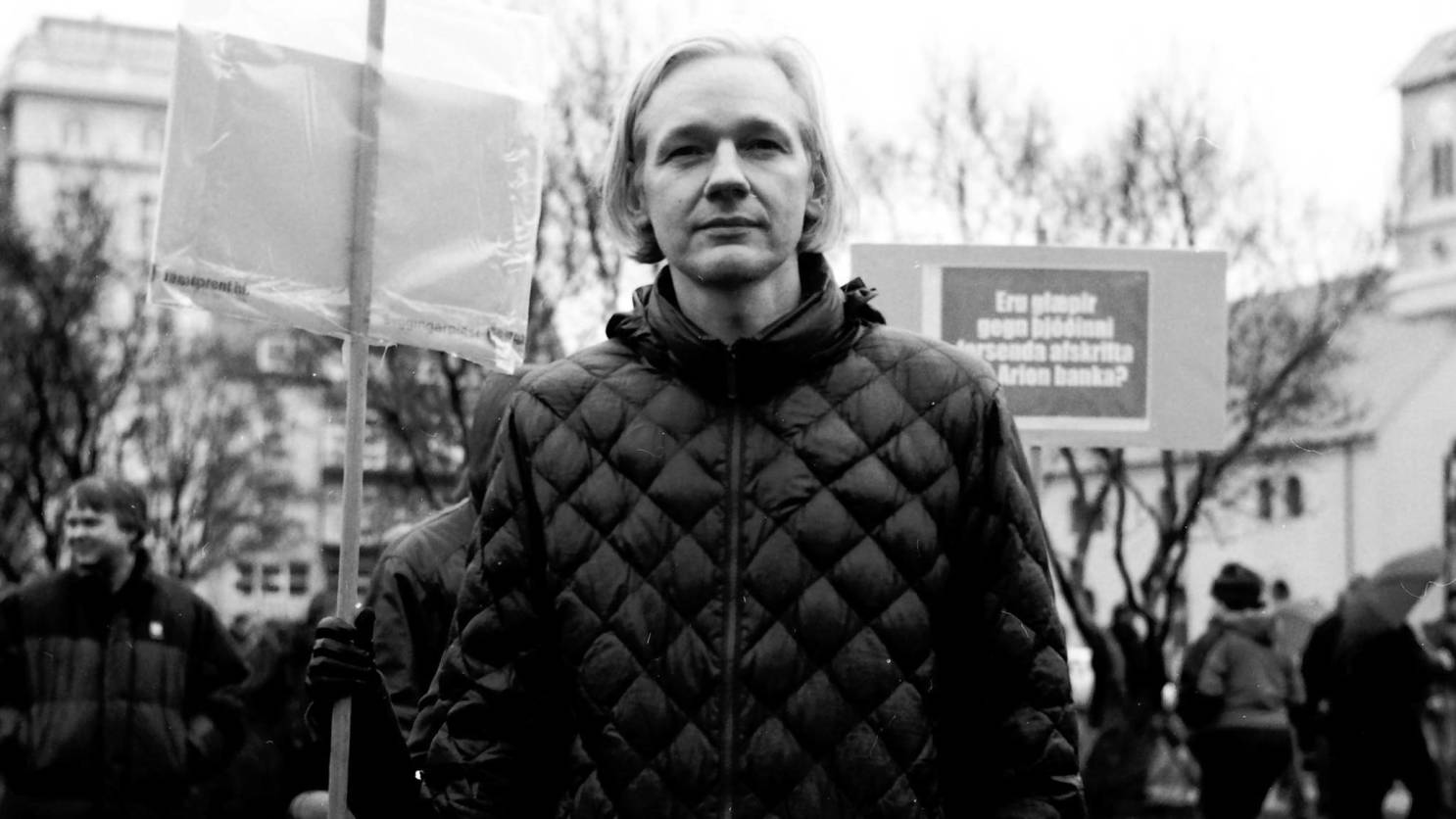By Chlotrudis Independent Film Society
Rating: 3.5 cats
Director: Alex Gibney

Country: united_states
Year: 2013
Running time: 130
IMDB: http://www.imdb.com/title/tt1824254/combined
Jason says: “Toward the end of WE STEAL SECRETS, one of the interview subjects calls back to an early online handle of Julian Assange’s, ‘Mendax’, an abbreviation of ‘noble liar’. That is, however, not the first (possible) online alias of his that is mentioned, and some might suggest that ‘wank’ is more appropriate. That both are raised as possibilities certainly suggests that director Alex Gibney is taking a fairly even-handed look at the topic.
“‘WANK’ was the name of a group that managed to get a worm into NASA’s systems out of fear of the shuttle carrying a nuclear-powered payload in the late 1980s; it was believed to have originated from Assange’s Melbourne circle of hackers. And while Assange’s activism would eventually morph from direct action to creating WikiLeaks, a spot where whistleblowers can anonymously upload documents in the interest of transparency. After getting a certain amount of international renown by exposing misdoings in an Icelandic bank, he hits pay dirt when somebody – by all evidence, troubled US Army Private First Class
Bradley Manning – uploads a treasure trove of military and diplomatic information.
“It’s quite possible that the time might not yet be right for a WikiLeaks documentary. The very nature of the story means that it
played out in public quite recently, so many people with interest in the subject have likely been consuming the primary sources as events unfolded. There is also an argument to be made that the story is unfinished; there are on-screen updates dated March 2013 just before the closing credits roll and it wouldn’t be unreasonable to expect that text to be updated again before the home video release. That doesn’t necessarily make the film’s narrative incomplete – whatever happens to Assange and Manning, the implosion of WikiLeaks is unlikely to reversed.
“What does make WE STEAL SECRETS interesting and worth seeing is the paradoxes that inevitably emerge from the current world of secrets and sharing. People who served in the Bush and Obama administrations talk about how such a massive leak was possible because, while more and more things have been classified by the government as off-limits to the general public since the 9/11 attacks, they were less compartmentalized, an arrangement that reflects the general internet culture. Perhaps more interesting and more important is how, for all that anonymity and decentralization are perhaps the most important tools in the ability of something like WikiLeaks to break news, they run counter to human nature.
“Even though Gibney was not able to speak to either Assange or Manning for this film, they manage to be presences. Assange, after all, turned out to quite like attention, and footage from another documentary is incorporated seamlessly enough that it could be purpose-made for this film. Manning, having been held in various military prisons for the past three years, was not nearly so accessible, so Gibney and company must rely on what seems like a total of three stock photos and the transcripts of his online chats with Adrian Lamo, the man who would turn him in. It’s interesting how those transcripts and the interviews with people who knew him manage to communicate a great deal of sympathy without particular approval, even from fellow soldiers. Not all the interviews seem quite so balanced – Gibney seems to quite pointedly use close-ups and editing to make Lamo look bad and ‘Anna’ (one of the two women whose accusations of sexual misconduct against Assange had him holed up in various forms of house arrest and exile) looks good.
“Gibney does, at least, give the audience some chance to see how he’s perhaps stacking the deck, so he’s not exactly a particular hypocrite where it comes to transparency – and though he never steps in front of the camera, his first-person narration is unusual for what is a fairly slick studio-produced documentary. This affords him access to some flashy graphics that are fairly helpful in explaining the concepts involved, but one does have to wonder if it makes the film a bit muted; WE STEAL SECRETS occasionally feels like it’s accusing the U.S. Government of a great many crimes without being especially angry about it.
“Often, a film having that sort of mild personality can be a positive – I generally find myself more drawn to documentaries that are dense with information than commentary – and it does make WE STEAL SECRETS a decent primer for those with some interest in the WikiLeaks/Assange/Manning stories who may not be exceptionally well-informed. That’s probably a larger audience than one would hope, but the question still remains: How many of us are there that are both able and inclined to learn something from this sort of overview? 3.5 cats
“Seen 2 June 2013 in Landmark Kendall Square #7 (first-run, DCP).”
